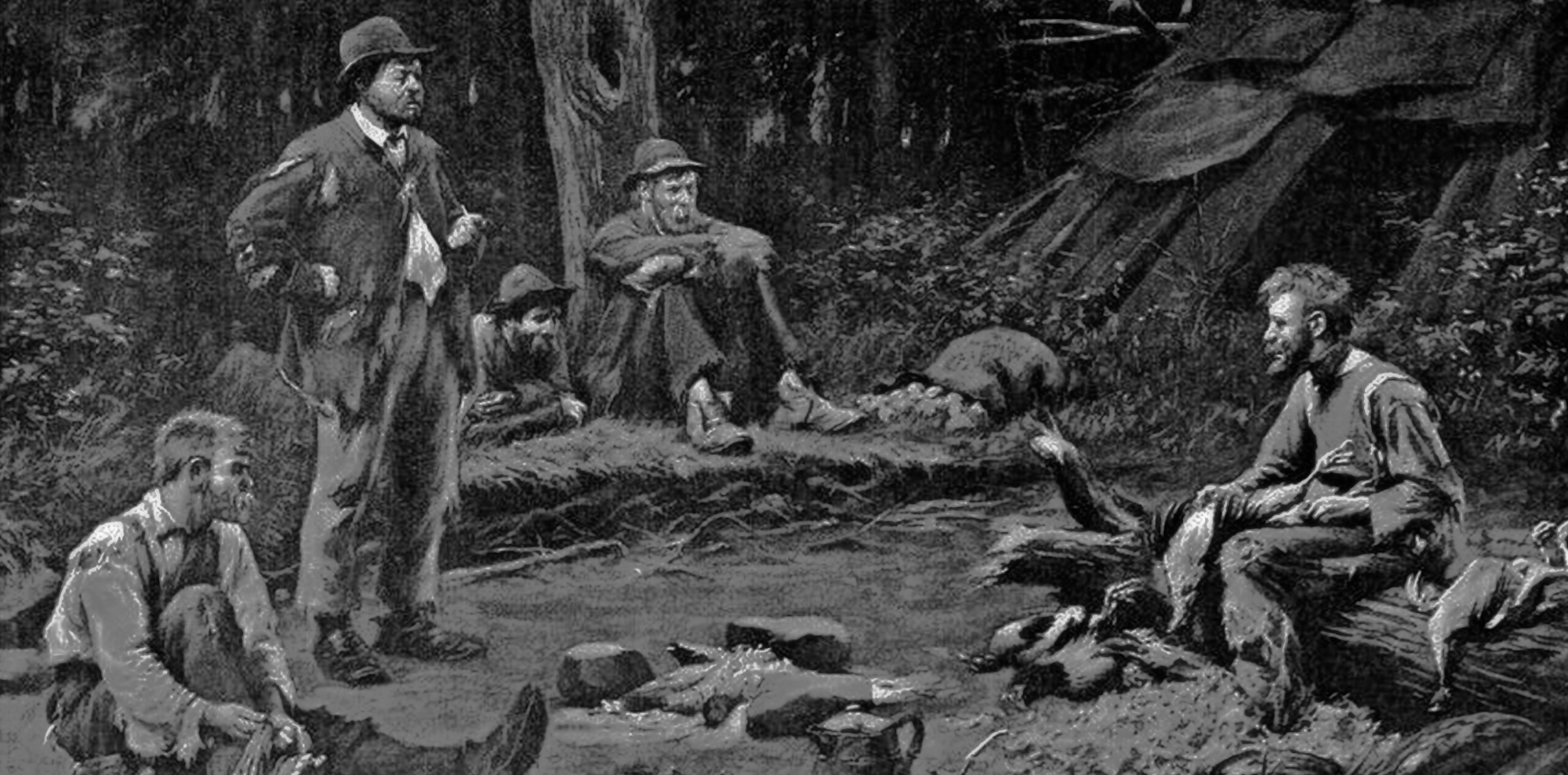The Mystique of the American Hobo
At the end of the Civil War, countless veterans found themselves dispossessed and began hopping freight trains to look for work on the American frontier. These migrant workers came to be known as hoboes. Like the cowboys of the old west, hoboes embodied qualities of resilience, ingenuity and transcendent freedoms. Their stories still inspire many who long to abandon the fabric of modern life. The mystique of the hobo is fixed in the canon of legends that are essential to the American experience.
Nowadays, at any given time, a million people tour the roads and highways of North America in recreational vehicles. They travel with trailers or in vans and motor homes of all shapes and sizes. Some are vacationers, who go for a few days or weeks of sight-seeing. They generally stay at commercial RV camps and National Parks and then return to their homes. Others are sojourners known as snowbirds. They leave their northerly homes in winter to head south for stays in warmer climes, then return to their homes when the snows melt in springtime.

Yet another culture emerging in the 21st Century are travelers who are living their lives closer to the experience of the bygone hobo. The economic collapse in 2008, and “the great recession” that followed, triggered the genesis of many for whom traveling, open-ended wandering and endless discovery has become a way of life. While these folks don’t ride the rails, they do ride the roads of North America. They ride the Interstates, the “blue highways”, the backroads, and dirt roads… sometimes they just light out across open deserts and prairies, into forests or along great, sandy beaches. With vast reserves of BLM lands, National Forests and other resources, these wayfarers rarely have to pay anything for campsites. They are a new breed of nomads.
What distinguishes the nomads is that these people no longer own or rent houses or apartments. Also in this group are travelers who’ve chosen the lifestyle by design. They are rugged individuals who wish to live their lives more simply and with a greater sense of romance and adventure.

Like the traditional hobo the nomads, as necessary, are willing to work to earn their way. For some, pensions and/or residual income eliminates the imperative of earning. But all have the distinction of being in possession of moveable shelters – mobile homes, which are the only homes they have. For them, at the end of any given day, they simply find a quiet spot for the night, pull the door shut on their trailer or van and sleep the sleep of the just. When a new day dawns, they suit up and continue on their adventures. To paraphrase Ernest Hemingway, “The world is a big place… and worth seeing.”

